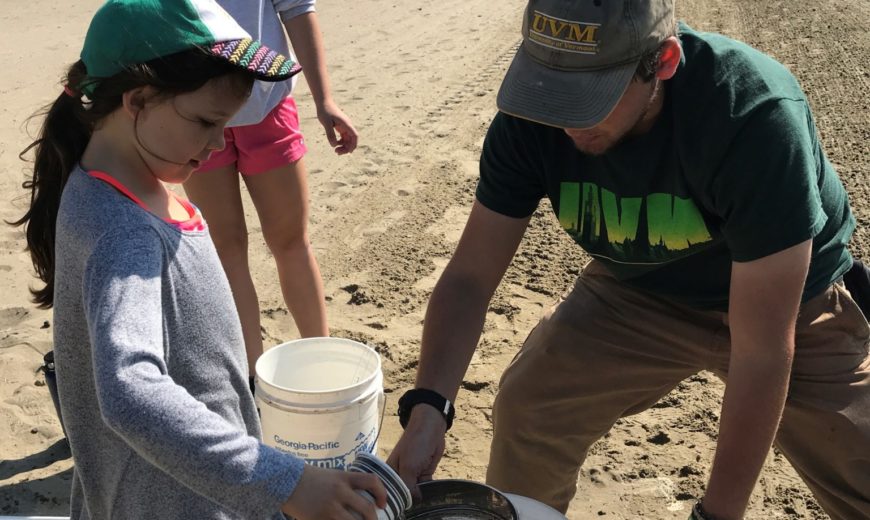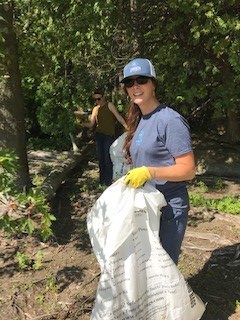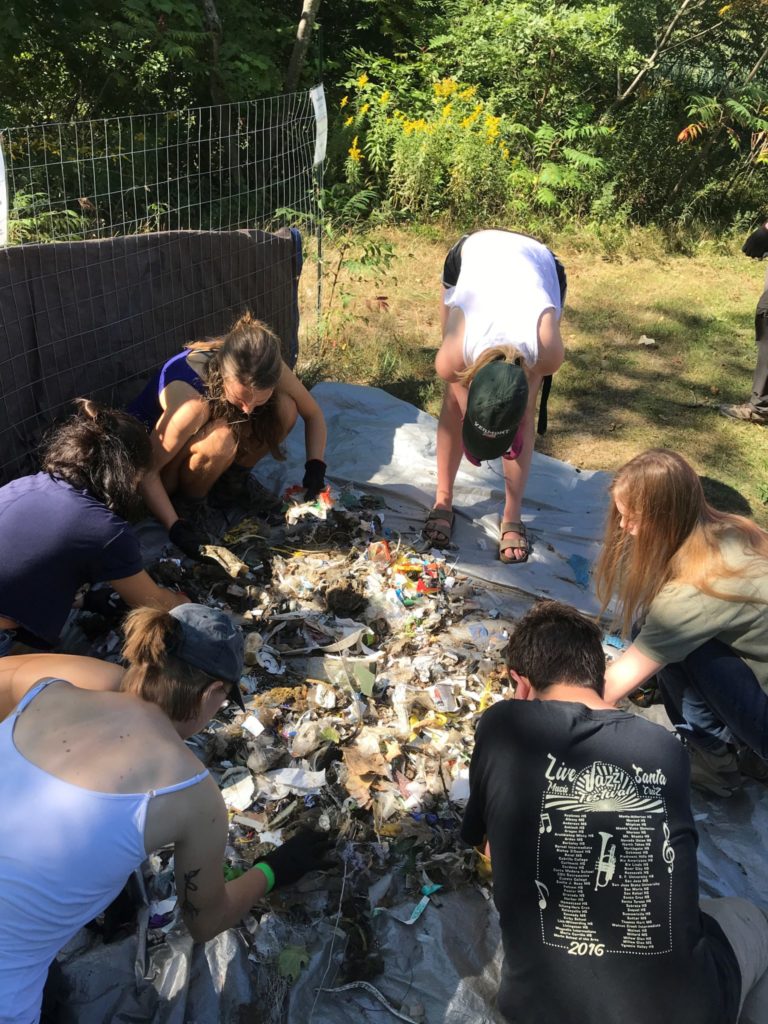Rozalia Project Beach Clean Up

 Guest blog post by Ashley Sullivan.
Guest blog post by Ashley Sullivan.
On a windy day back in September, over 30 volunteers worked with Rozalia Project, a local environmental non profit, to clean up a few community beaches in Burlington. Rozalia Project is the Vermont coordinator of the Ocean Conservancy’s International Coastal Cleanup (ICC) which is an event that happens around the globe every Fall.
This is not your typical beach clean up because we are also collecting data of everything we find. Why? So that we can work towards solutions to an increasing problem of plastic pollution in the marine environment. This global event has resulted in the largest data set of trash found on our shores. This information has been critical to communities and countries as we try to understand more about this trash, the effect it is having, where it is coming from and how we can stop it at the source! Marine Debris is a global problem that affects all of our waterways including us up here in the Green Mountain State.
Rozalia Project hosted this event for the past 7 years and this year decided to branch out to 2 local beaches, Blanchard Beach in Oakledge and North Beach. While scouting, we realized that Burlington City Parks and Recreation do an excellent job keeping the beaches clean with daily tractor raking during our summer season so we had to look hard and even spilled over to clean the Episcopal Diocese property as well. We all love this Green Mountain State and the health of our streams, rivers, lakes and ocean depends on each of us to keep our human trash out of our public waterways.

On the surface most beaches or shorelines look clean but when you focus, you will be surprised what you will find!
At Oakledge Park we removed 405 pieces from the shore! The top 5 items were:
- Food Wrappers – 73 items
- Cigarettes – 64 items
- Plastic bottle caps – 45 items
- Large Plastic – 43 items
- Paper/tissue/napkins – 34 items
At the North Beach location we recovered a total of 3,289 pieces of debris! (we cleaned to the north on the Episcopal Diocese property) The top 5 items recovered were:
- Plastic sheeting/ tape – 1460
- Small plastic – 600
- Food Wrappers – 281
- Large Plastic – 106
- Straws/stirrers – 105
The items/data collected here in our city is a microcosm of what is being found all over the Earth. Right now we know that 8 million tons of plastic is dumped into our oceans every year.
Did you notice how all the top 5 items that we recovered here on Lake Champlain are plastic except the paper/tissue? With science telling us that plastic pollution is and will continue to have major negative environmental impacts, it is time for us to reflect on simple changes that we can all make as individuals and collectively that will add up to BIG impact. Beach cleanups are not the only solution to this big problem. They are, however, an important opportunity for us to connect with our natural world, understand the problem of marine debris and discover how we can all be a part of the solution.
We hope to see you all next year, on the third Saturday in September to clean the shores of Lake Champlain. Thank you to Burlington City Parks for their support and to all of YOU who showed up to make a difference.
Rozalia Project is tackling the problem of marine debris through education, cleanups, solutions based research and innovation and technology! We work from the surface of the water to the seafloor with a focus on urban and coastal areas because what we do know, is that trash is coming from people! Keep in touch with us on our social media: www.rozaliaproject.org and @rozaliaproject We love to talk all things marine debris, rivers, lakes and oceans!
For Clean Rivers, Lakes and Oceans,
Ashley Sullivan
Executive Director
